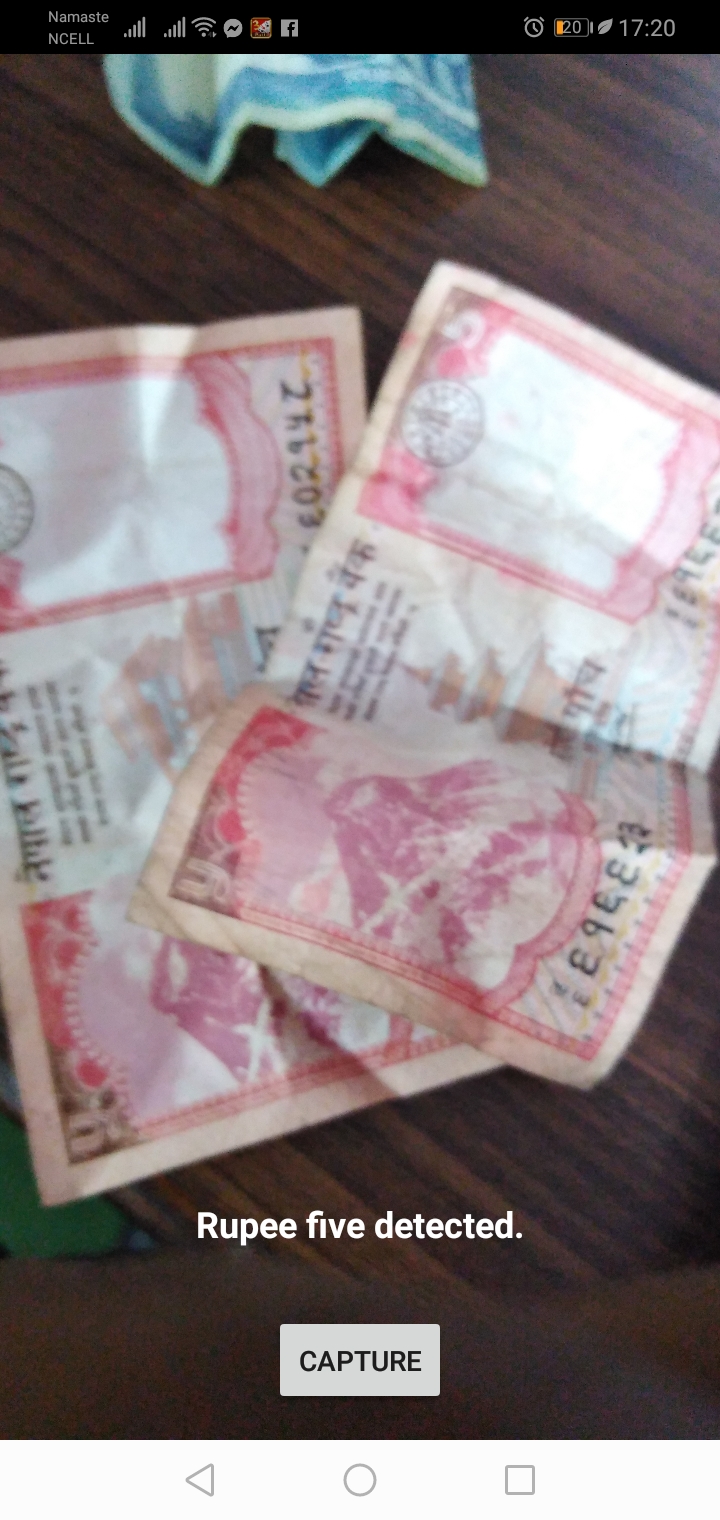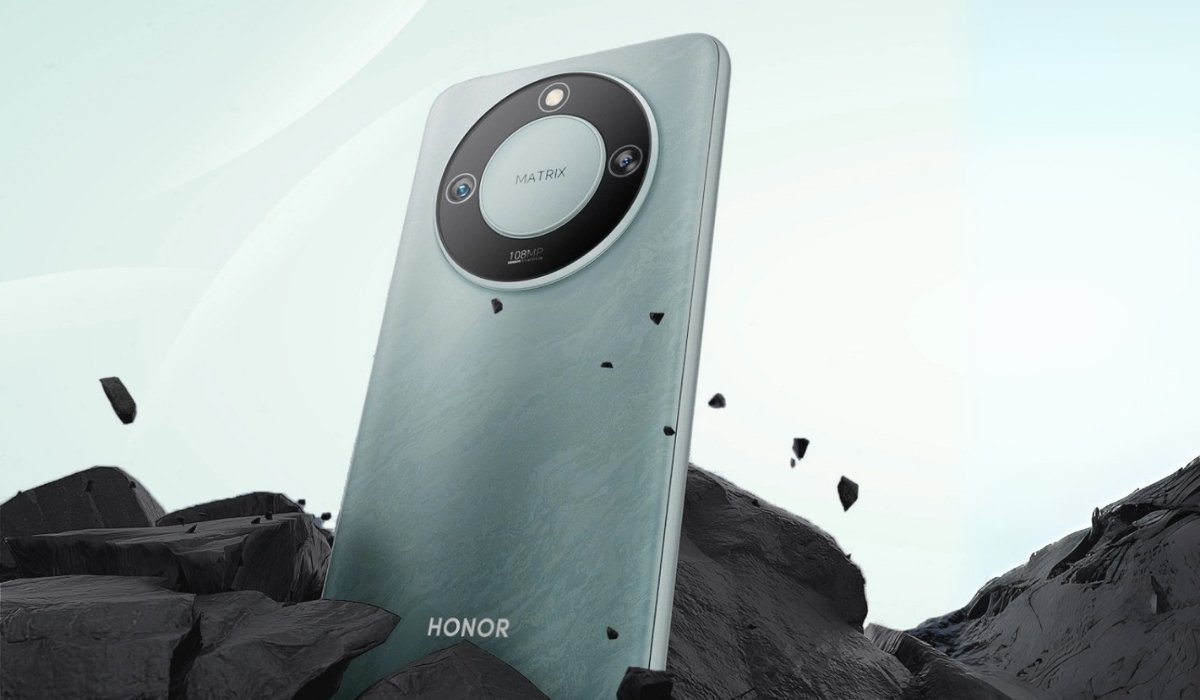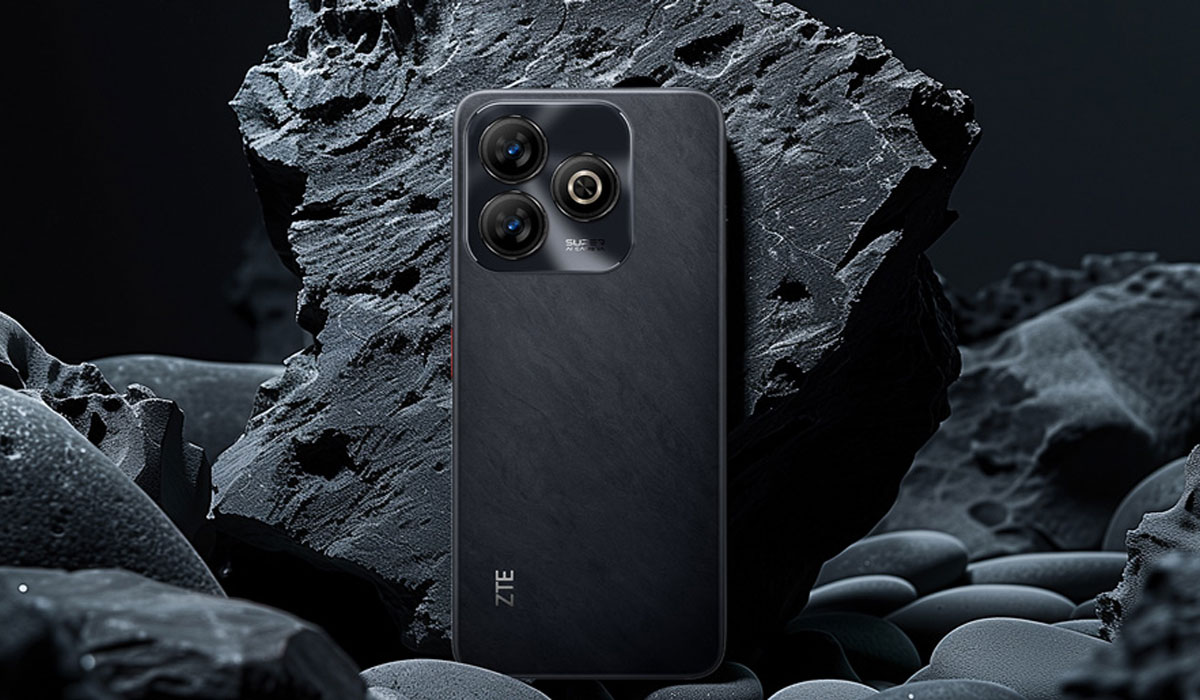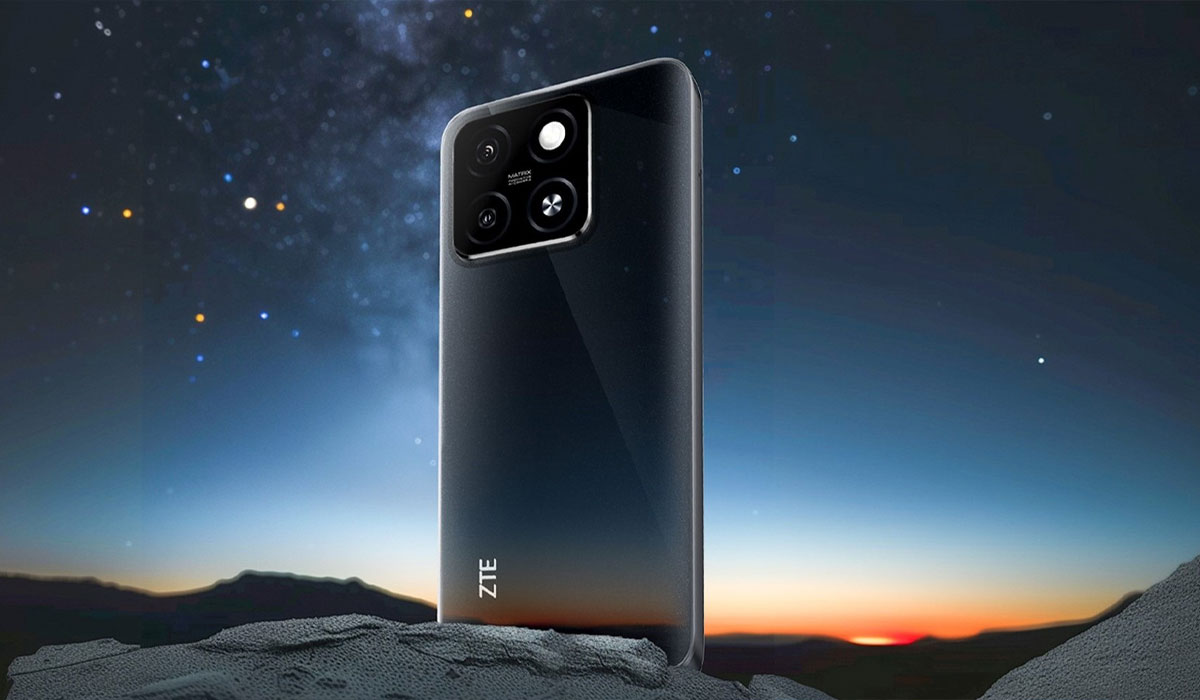Every now and then, an app comes along the way that is solely focused on improving people’s lives above everything else. The Cash Recognition for Visually Impaired App by Kshitiz Rimal is one of them. The long name of the app succinctly sums up what this app is. It is an app that recognizes money for visually impaired people.
While most of us don’t give a second thought while taking part in monetary transactions, it is a real difficulty for visually impaired people. Imagine this situation once: you are rummaging through your purse to find a note for the bus fare, you take it out and hand it to the conductor, and it is a Rs. 100 note instead of Rs. 10 you thought you picked out. This has happened to me a lot and I have two perfectly functioning eyes. Also how many times has a conductor tried to give you a Rs. 5 note saying it is a Rs. 20 in the dark? And how many times have you taken it without noticing?

These situations arise and we can deal with most of them, thanks to our eyes. But, as you can imagine, it is extremely difficult for visually impaired people. When you are traveling in a bus or buying a vegetable, how do you know which note you are giving the recipient? Nepali notes have no definitive structure or tell to differentiate between them with touch. Of course, you can trust the recipient to say which note you’ve given them but this is not always practical.
Using the app
This is where this app comes in. You download the Cash Recognition for Visually Impaired App and just use it. How this works is, you open the app, you put the note that you want to recognize in front of your rear camera, you touch the screen of your phone (anywhere on the screen), and the app will tell (in a robotic voice) which note you are holding in your hands. You don’t have to be connected to the internet to do this. This app works offline.
There are no buttons for settings or anything. This may be the simplest app I’ve ever used.
Reliability
When I first tried using the app, I got too many ‘Can’t recognize, try again’ notifications. And then I realized that the app works better if you bring the note closer to the camera. After that, the app has been consistent in recognizing the notes that I presented in front of it.
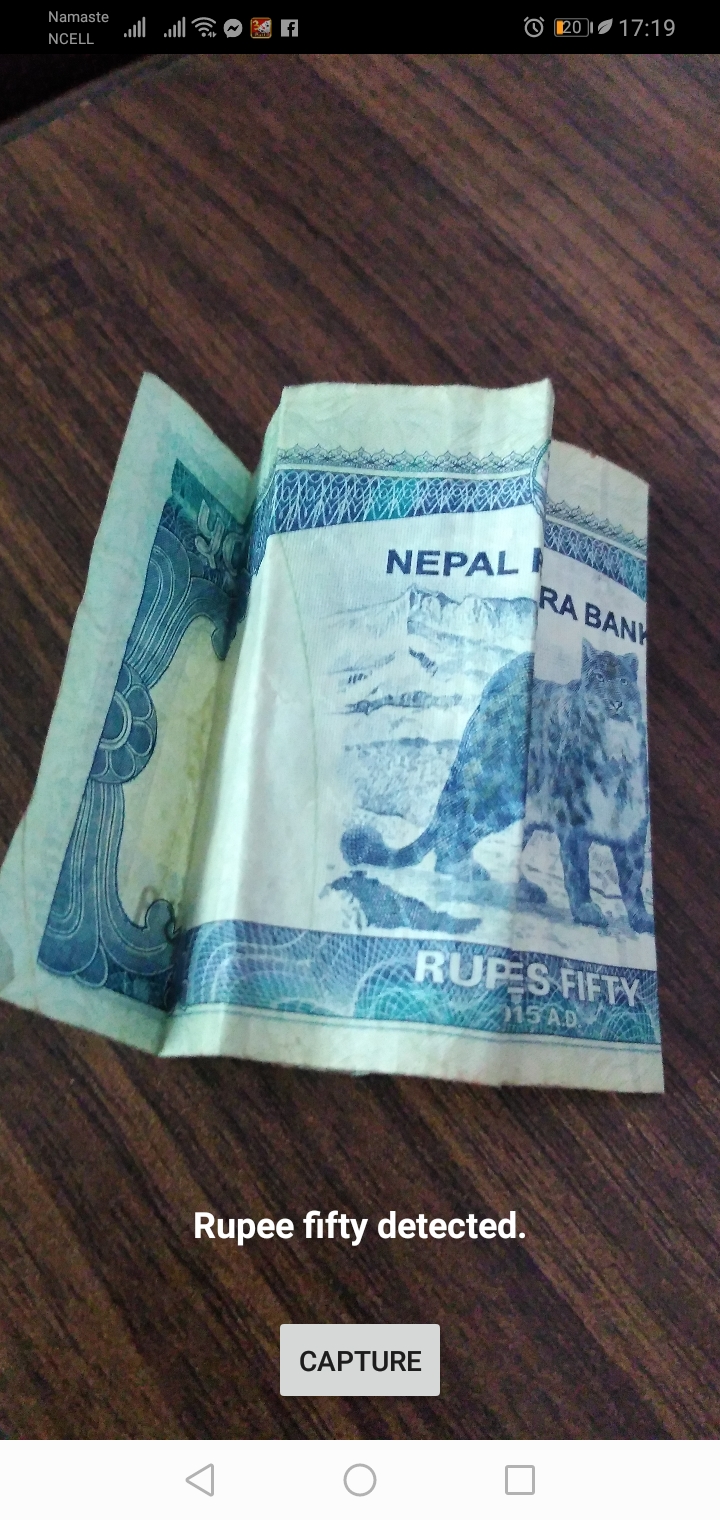
Overall
In the end, this is a very useful app for visually impaired people. If you guys think that making this app was very easy, please don’t fool yourself. This was months and months of hard work from the developer Kshitiz Rimal. He used deep learning techniques to build this app. If you are interested in a similar project or want to read about the story of Mr. Khsitiz and this app, visit this link: https://software.intel.com/en-us/articles/success-story-using-ai-to-help-visually-impaired-people-identify-cash
-
Honor X9c Launched In Nepal — And Durability Ain’t All It’s About! *Phew*HIGHLIGHTS The Honor X9c Smart price in Nepal is Rs. 38,999 (12/256GB). It has the…
-
ZTE Blade A75 Launched in Nepal: Large Storage on a BudgetHIGHLIGHTS The ZTE Blade A75 4G price in Nepal is Rs. 13,999 (4/256GB). The phone…
-
ZTE Blade A55 with 90Hz Refresh Rate Launched in NepalHIGHLIGHTS The ZTE Blade A55 price in Nepal is Rs. 11,999 (4/64GB) and Rs. 12,999…






